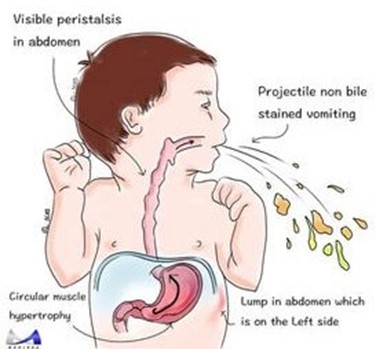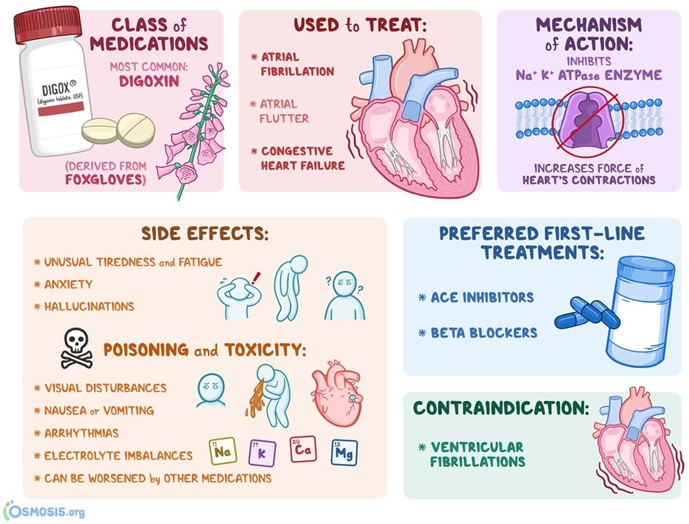The nurse is caring for a 5-week-old infant presenting with a history of projectile vomiting after feedings.
Which additional finding should the nurse expect to assess?
Rebound tenderness in the left lower abdominal quadrant.
Stool that consists of mucus and blood.
Olive-size mass in the epigastric area.
Frequent burping accompanied by poor feeding.
The Correct Answer is C
In a 5-week-old infant presenting with a history of projectile vomiting after feedings, the nurse should expect to assess an olive-size mass in the epigastric area. This finding is consistent with pyloric stenosis, a condition in which the muscle at the bottom of the stomach that controls the flow of food into the small intestine becomes thickened and narrowed.
Rebound tenderness in the left lower abdominal quadrant, stool that consists of mucus and blood, and frequent burping accompanied by poor feeding are not typically associated with pyloric stenosis.

Nursing Test Bank
Naxlex Comprehensive Predictor Exams
Related Questions
Correct Answer is A
Explanation
For an eight-month-old infant with heart failure, the nurse should withhold digoxin if the infant's apical pulse is less than 90 beats/minute and notify the healthcare provider. In this case, the infant's apical pulse is 88 beats/minute, so the nurse should withhold the digoxin and notify the healthcare provider.
Furosemide ( B), hydralazine (C), and enalapril (D) do not have specific parameters for withholding based on the infant's vital signs.

Correct Answer is A
Explanation
Answer: A. Biopsy may rupture the encapsulated tumor and cause the cancer cells to spread.
Rationale:
A) Biopsy may rupture the encapsulated tumor and cause the cancer cells to spread: This is the primary reason why surgery is performed before a biopsy in cases of Wilms tumor. The tumor is usually encapsulated, and performing a biopsy could risk breaking the capsule, leading to the dissemination of cancer cells into surrounding tissues, which can worsen the prognosis.
B) Metal clips are surgically applied at the tumor site for exact marking for radiation: While marking the tumor site for radiation is important, it is not the primary reason for performing surgery before a biopsy. The main concern is about the potential for cancer cell spread during a biopsy procedure.
C) Surgery is necessary to stage the tumor and determine metastasis to other sites: Although staging is a critical aspect of cancer management, the urgency of avoiding tumor rupture and subsequent spread is more pressing in this context. The surgery may assist in staging, but that is not the primary reason for immediate surgical intervention.
D) The surgery provides a visualization of other pathology and dysfunction of the kidney: While the surgical procedure may provide additional information about the kidney's condition, the most significant concern regarding Wilms tumor is preventing tumor rupture and the consequent spread of cancer cells, making this option less relevant.
Whether you are a student looking to ace your exams or a practicing nurse seeking to enhance your expertise , our nursing education contents will empower you with the confidence and competence to make a difference in the lives of patients and become a respected leader in the healthcare field.
Visit Naxlex, invest in your future and unlock endless possibilities with our unparalleled nursing education contents today
Report Wrong Answer on the Current Question
Do you disagree with the answer? If yes, what is your expected answer? Explain.
Kindly be descriptive with the issue you are facing.
